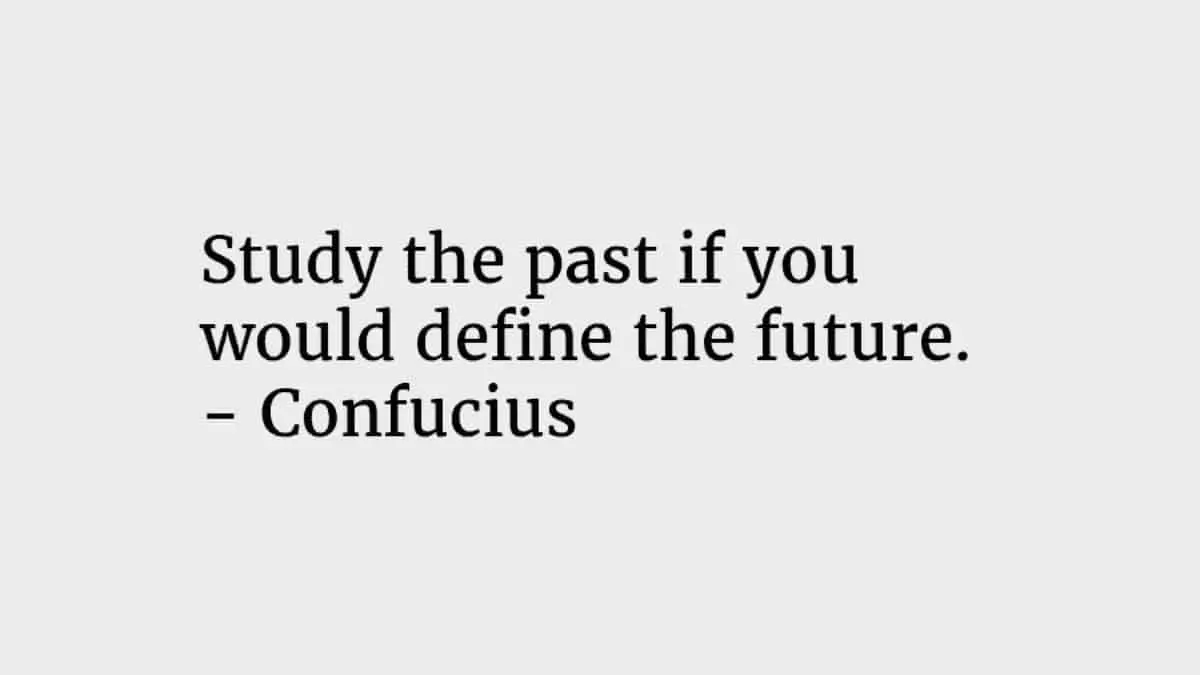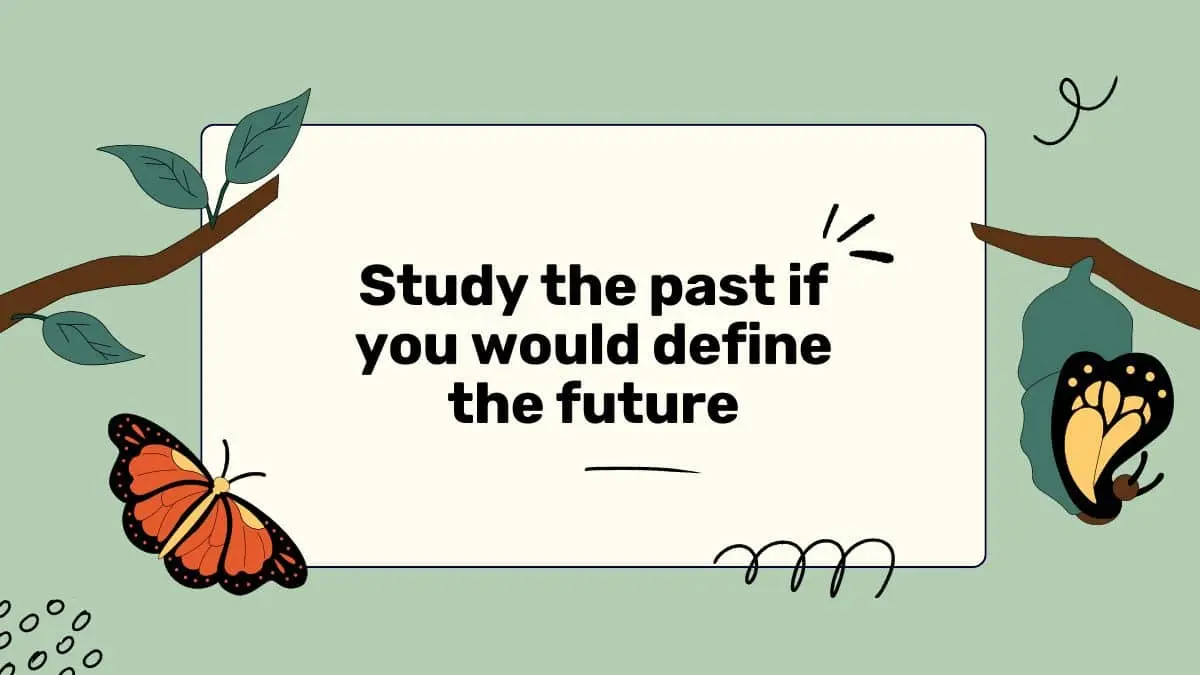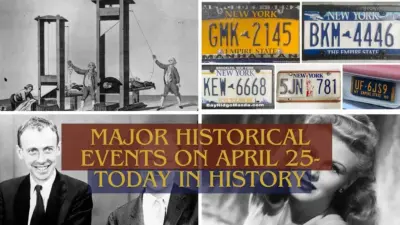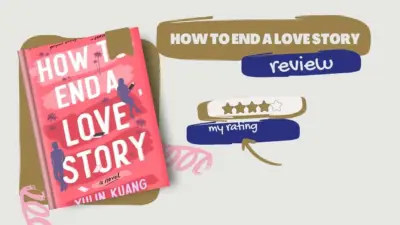The famous quote, “Study the past if you would define the future,” attributed to Confucius, holds profound wisdom that transcends time and geography. In a world that often seems relentlessly forward-looking, it’s essential to recognize the value of the past and how it can inform and guide our decisions and ambitions. This blog explores the significance of this idea, illustrating with examples from various fields how an understanding of history can shape a better future.
Learning from History
History is not just a record of events; it’s a treasure trove of lessons learned, ideas tested, and perspectives gained. By studying historical successes and failures, we can avoid past mistakes and replicate successful strategies. For example, the widespread economic crises of the past, like the Great Depression of the 1930s, have taught economists and policymakers the importance of regulatory oversight and fiscal stimulus in managing economic downturns. This understanding was crucial in shaping the responses to the financial crisis of 2008 and the economic impacts of the COVID-19 pandemic.
Scientific and Technological Progress
The scientific method itself is a historical accumulation of knowledge. Each new discovery builds on previous findings. For instance, the development of the mRNA vaccines for COVID-19 was made possible by decades of research, including studies on RNA technologies that began in the 1990s. Without a detailed understanding of this past research, the rapid development of these vaccines would not have been possible. This exemplifies how studying past scientific endeavors can lead to groundbreaking advances that define the health and wellbeing of the future.
Environmental Conservation
Environmental studies are another area where the past can profoundly inform the future. Historical data on climate patterns, extinction events, and human impact on ecosystems are crucial for current conservation efforts. For example, the analysis of the dust bowl era in the United States during the 1930s has led to better practices in land management and agricultural policy to prevent similar ecological disasters. By learning how historical events were influenced by human actions, we can make more informed decisions about sustainable living and environmental preservation.

Cultural Understanding and Social Progress
The past also holds key lessons in cultural understanding and social justice. The civil rights movement in the United States during the 1950s and 1960s, for example, provides valuable insights into the strategies that can be used to combat systemic inequality. Studying these events helps activists and policymakers understand what tactics can effectively promote social change and what pitfalls might lead to stagnation or backlash. This understanding is crucial as societies continue to strive for greater equality and inclusion.
Economic Policy and Development
Economic history offers clear examples of how past events shape future policies. The Marshall Plan, initiated by the United States after World War II to rebuild European economies, illustrates how well-planned economic interventions can lead to robust and sustained economic growth. Modern economic initiatives in developing countries often draw on lessons from such historical precedents, emphasizing the importance of investment in infrastructure and education to achieve long-term development goals.
Personal Growth and Future Planning
On a personal level, understanding one’s own past—be it personal experiences, family history, or educational background—can play a critical role in defining the future. Reflecting on personal successes and failures can guide future decisions in careers, relationships, and personal development. For example, a professional might reflect on a past failed project to hone their project management and leadership skills, ensuring future successes in their career.
Conclusion
Studying the past is not about dwelling in it but about harnessing its lessons to innovate and improve. As we look forward, equipped with knowledge and understanding from our history, we can make smarter choices, avoid previous errors, and strive towards a future that is informed by the best of human experience. Whether it’s in global health, environmental policy, social justice, economic strategy, or personal development, the past is a compass that guides us through the uncertainty of the future.
Also Read: Stop comparing yourself to other people, just choose to be happy and live your own life



